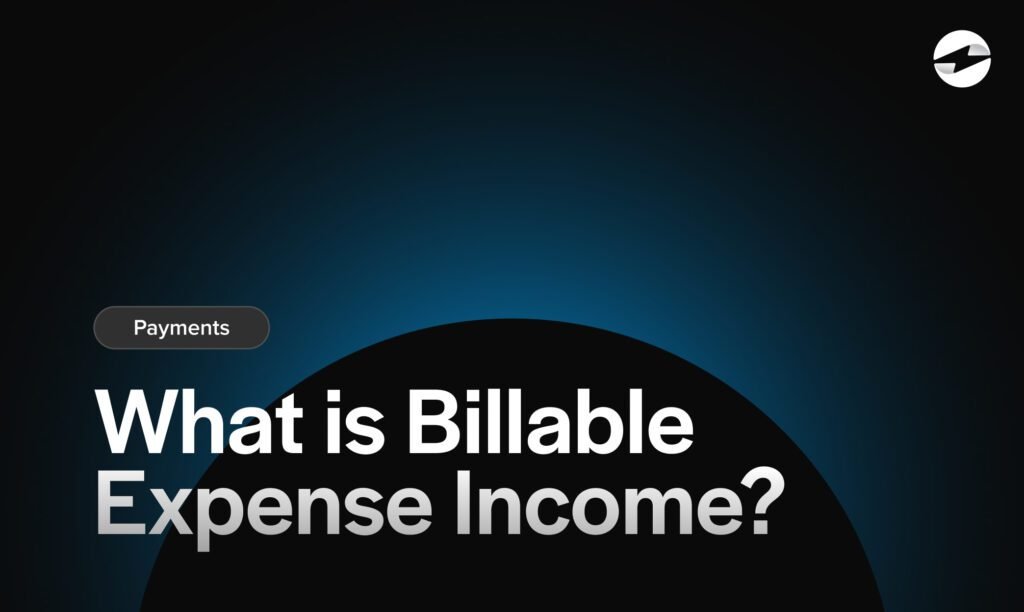Billable expense income is a concept that is especially relevant for businesses that work on projects or offer services where costs are incurred on behalf of a client. Understanding billable expenses is crucial for accurately managing financials and ensuring profitability. In this blog post, we will dive into what billable expense income is, how it works, and answer some of the most commonly asked questions about it.
What is Billable Expense Income?
Billable expense income refers to the income generated by charging clients for expenses that were incurred on their behalf while delivering a service or completing a project. These expenses are initially paid by the business, but they are ultimately billed to the client for reimbursement. Examples of billable expenses include travel costs, materials purchased specifically for a project, or any other direct costs that were required to fulfill the client’s requirements.
For example, if a consultant has to travel to a client’s location, the travel expenses (such as airfare, lodging, and meals) are considered billable expenses. The client is billed for these expenses, and the reimbursement of these costs is recognized as billable expense income.
How Billable Expenses Work
Recording the Expense: When a company incurs an expense on behalf of a client, it records the expense as a billable expense in its accounting system. This allows the company to keep track of all costs associated with a specific client or project.
Billing the Client: Once the project or service has progressed to a certain point, the company will issue an invoice to the client, including the billable expenses that were incurred. The expenses are added to the invoice as separate line items.
Recognizing Income: When the client pays the invoice, the payment for those expenses is recorded as billable expense income. This income helps to ensure that the company does not bear the financial burden of costs that were incurred specifically for the client.
Examples of Billable Expenses
Travel Costs: Airfare, car rentals, fuel costs, lodging, and meals when traveling to meet clients or attend project-related events.
Materials and Supplies: Any materials or supplies purchased specifically for a client’s project, such as construction materials or specialty equipment.
Third-Party Services: Costs related to hiring third-party contractors, consultants, or other professionals needed to complete a client’s project.
Shipping and Delivery: Shipping or delivery fees for sending products, prototypes, or materials to clients.
How to Record Billable Expenses
Track All Costs: When incurring expenses on behalf of a client, it is important to track each cost accurately. This includes saving receipts and documenting the purpose of the expense.
Use Accounting Software: Many accounting software solutions, such as QuickBooks or Xero, allow you to record expenses as billable and assign them to specific clients or projects. This makes it easy to generate invoices and ensure all billable expenses are captured.
Create Invoices: When billing the client, include the billable expenses as separate line items on the invoice. Clearly state the nature of the expenses and attach any necessary receipts to maintain transparency.
Recognize Income: When the client pays the invoice, record the payment, including the billable expenses, as billable expense income. This helps maintain accurate financial records and ensures that your business is reimbursed for all incurred costs.
Importance of Billable Expense Income
Financial Clarity: Tracking billable expenses and income helps businesses maintain financial clarity, ensuring that all client-related costs are accounted for and reimbursed.
Profitability: Properly managing billable expenses ensures that the business is not losing money on costs that should be covered by the client. It helps in maintaining profitability for projects.
Transparency: Providing clients with detailed invoices that include billable expenses helps foster trust and transparency. Clients can see exactly what costs were incurred and why they are being billed.
Frequently Asked Questions About Billable Expense Income
Q1: What is the difference between a billable expense and a non-billable expense?
A billable expense is an expense incurred on behalf of a client that will be reimbursed by the client. A non-billable expense is a cost that the business incurs as part of its operations and does not get reimbursed by a client, such as office rent or utility bills.
Q2: How do I track billable expenses?
You can track billable expenses using accounting software that allows you to tag expenses as billable and assign them to specific clients or projects. Keeping detailed records, including receipts, is also important for accurate tracking.
Q3: How do I bill clients for billable expenses?
To bill clients for billable expenses, include the expenses as separate line items on the invoice, clearly describing each expense and attaching supporting documentation, such as receipts.
Q4: Are billable expenses considered income?
Yes, when a client reimburses a billable expense, it is recorded as billable expense income. This ensures that the business is not financially burdened by costs incurred specifically for a client.
Q5: Do billable expenses affect profit?
Billable expenses do not directly affect profit, as they are costs that are passed on to the client. However, accurately billing for these expenses ensures that the company does not incur a loss on client-related projects.
Q6: What types of businesses commonly have billable expenses?
Businesses that provide services, such as consulting firms, law firms, construction companies, and freelancers, commonly have billable expenses. These businesses often incur costs on behalf of their clients that need to be reimbursed.
Q7: How should I present billable expenses on an invoice?
Billable expenses should be presented as separate line items on the invoice, with a clear description of each expense. This helps maintain transparency and makes it easy for the client to understand the costs.
Q8: Are billable expenses taxable?
The treatment of billable expenses for tax purposes can vary. In most cases, the business does not pay taxes on reimbursed expenses, but it is important to consult with an accountant to understand the specific tax implications.
Q9: Can I mark up billable expenses?
Yes, some businesses choose to mark up billable expenses before billing the client. If you plan to do this, it is important to clearly communicate the markup to the client to avoid disputes.
Q10: What should I do if a client refuses to pay for billable expenses?
If a client refuses to pay for billable expenses, review the contract to ensure that the expenses were clearly outlined. Open a dialogue with the client to understand their concerns and, if necessary, seek legal advice to resolve the dispute.
Conclusion
Billable expense income is a vital aspect of managing business finances for companies that incur costs on behalf of their clients. By properly tracking and billing for these expenses, businesses can ensure profitability, maintain transparency, and foster trust with their clients. Understanding how to handle billable expenses is crucial for keeping your financials in order and ensuring that your projects remain cost-effective.


